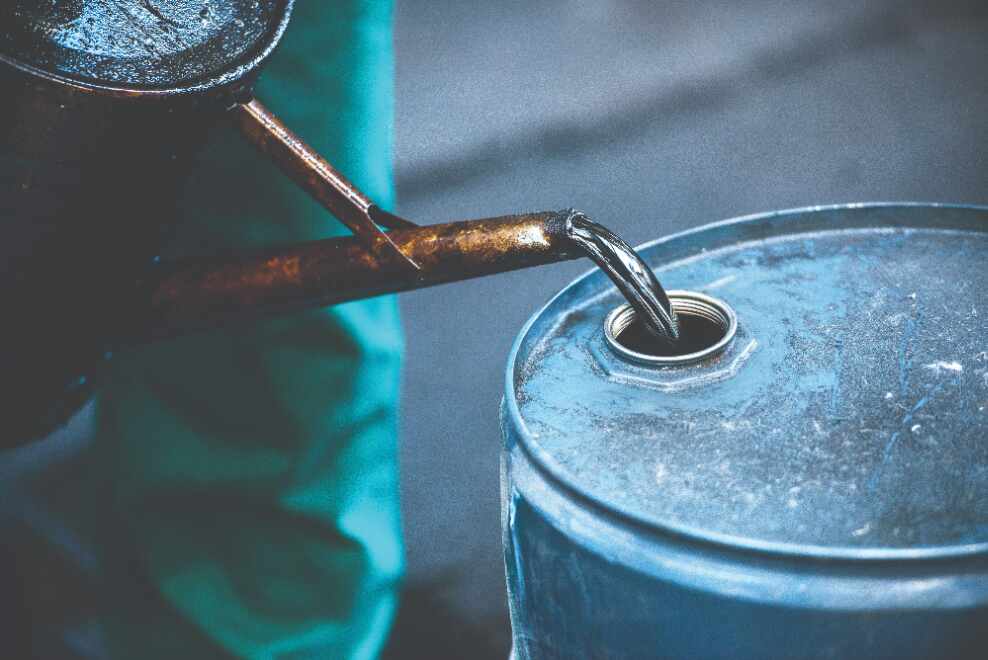India left with fewer options amid surge in global oil prices

New Delhi: As the world's third-largest oil importer and consumer, India is running out of options as the relentless surge in international oil prices make it imperative to pass them on to consumers, officials said Monday.
India imports 85 per cent of its crude oil needs and about half of its natural gas requirement. While the imported crude oil is turned into fuels such as petrol and diesel, gas is used as CNG in automobiles and fuel in factories.
"International crude oil prices continue to remain high, providing no respite to major oil importers such as India. (International benchmark) Brent oil future was quoting over $79 per barrel today. A month back it was less than $72," a top government official involved in the decision making said.
This spurt has squeezed margins and forced passing on to the increase to consumers in form of a hike in petrol and diesel prices.
"With international crude oil prices moving in both directions during July and August, no price increase was carried out by oil marketing companies (OMCs) from July 18 to September 23. Instead, a total decrease of Rs 0.65 a litre on petrol and Rs 1.25 per litre on diesel was carried out during that period.
"However, with no respite from surging international prices, OMCs have started to increase the retail selling price of petrol and diesel with effect from September 28 and September 24 respectively," the official said. While prices were unchanged on Monday, rates have gone up by Rs 2.15 paise per litre in the case of diesel since September 24. Petrol price has increased by Rs 1.25 per litre in one week.
"Unless international prices relent, oil companies will have no option but to continue passing on the increase to consumers," another official said.
Expectations of a continued crude oil supply deficit along with soaring gas prices spurring power producers to switch from gas to oil have helped support the rally in international prices. The global oil demand outlook continues to remain positive and is expected to reach pre-pandemic levels by early next year.
Petroleum Secretary Tarun Kapoor last week said that oil companies are taking their own decision on aligning retail rates with the cost but they are ensuring extreme volatility is avoided.
"We are watching the situation and trying to ensure the impact of global volatility is moderated to a large extent," he said. International prices of petrol, against which local rates are benchmarked, have risen from $85.10 per barrel to $87.11 in just one day, while diesel has gone up from $85.95 a barrel to $87.27.
This sudden spike in international oil prices follows global output disruptions, but the entire increase in retail rates necessitated by such an increase is not being affected, another official said.
"Just look at LPG rates. They have gone up from $665 per tonne to $797 in one month but oil companies haven't passed on the increase warranted from that," he said, adding state-owned companies were absorbing a lot of volatility.
The increases, he said, have been "mild to moderate".
"Some people are making a big deal out of the 62 per cent hike in natural gas prices. But if you look at the rates previously at $1.79 per million British thermal units were abnormally low and way below cost. They have now gone up to $2.9. They still are less than the cost of production of $3.5 per mmBtu and are certainly lower than the $4.2 price that was prevalent in India a decade back," the official said.
Naturally, the hike in natural gas price will warrant an increase in CNG price but the increase is again being moderated there too, he said, adding internationally the price of LNG in the spot market last week soared to an unprecedented $35.
"Compare to what is happening worldwide, we have managed the situation well," the official said.



